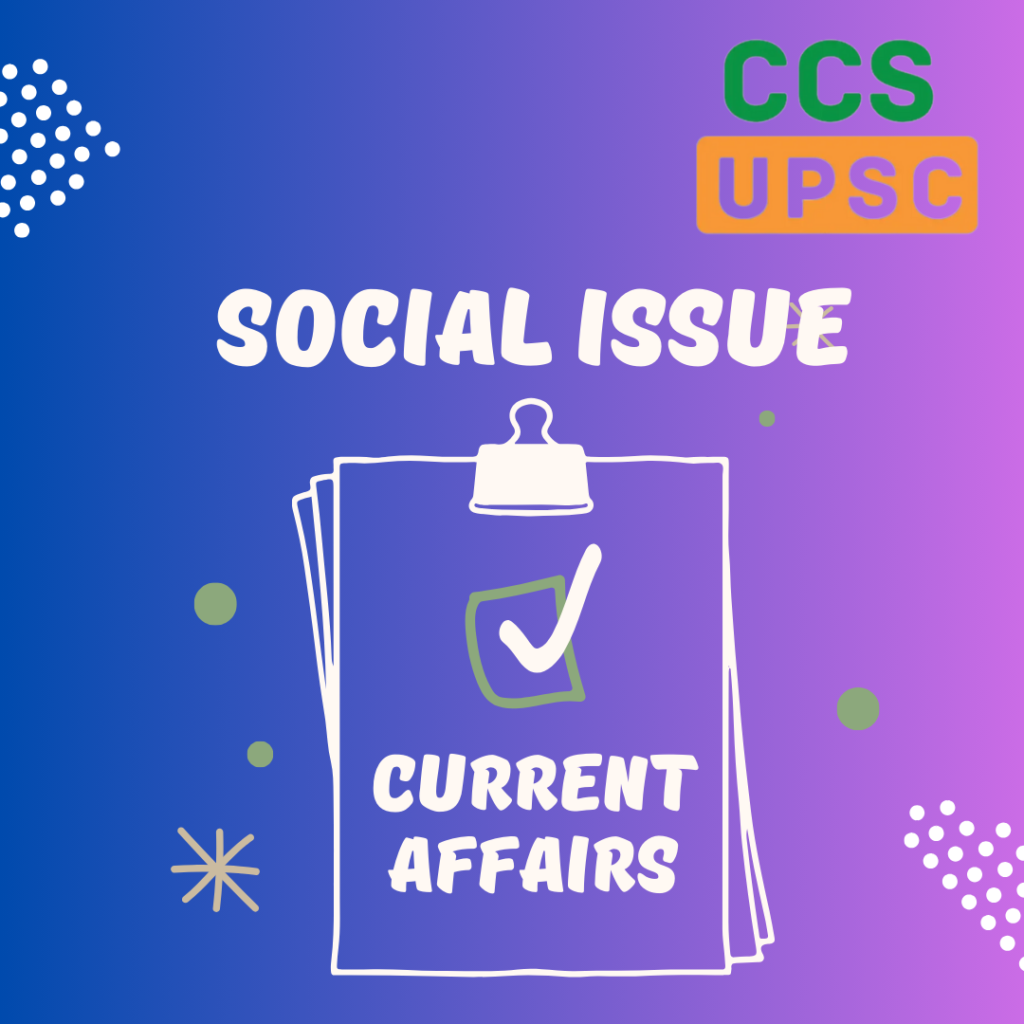In News :
THE Uttarakhand Legislative Assembly passed the Uniform Civil Code (UCC) Bill, 2024.
∙ The Bill explicitly bans polygamy in the state .
About Polygamy
∙ Polygamy is the practice of having more than one spouse( wife or husband at the same time.
∙ It has two forms, namely, polygyny (marriage of a man to several women at a time) and polyandry (marriage of a woman to several men at a time).
Data Analysis
∙ Government data on polygamy can be obtained from two main sources — the decadal census and the National Family Health Survey (NFHS).
∙ The NFHS-5 : It showed the prevalence of polygamy (the percentage of women who reported their husbands had other wives) was highest among Christians (2.1%), followed by Muslims (1.9%), and Hindus (1.3%), looking at religion.
∙ Overall, Scheduled Tribes reported the highest incidence at 2.4%.
∙ Census data : According to the census of 2011, there are 28.65 crore married men in India, compared to 29.3 crore married women. The difference between the two numbers — 65.71 lakh — can be explained either by the incidence of polygamy or men gone abroad.
Status in India
∙ It is governed both by personal laws and the Indian Penal Code (IPC).
∙ Polygamy is illegal under the Indian Penal Code (IPC), but Muslim men are allowed to have up to four wives under Sharia Islamic law.
∙ The Special Marriage Act (SMA), 1954 allows individuals to perform inter-religious marriages, but it forbids polygamy.
∙ Besides, polygamy also exists in many tribal communities.
Impacts and Consequences of Polygamous Marriages
∙ Social and Cultural Impact: In societies where polygamy is culturally accepted, it may not carry the same social stigma as in cultures where monogamy is the norm. Polygamy can influence gender dynamics, potentially reinforcing traditional gender roles and hierarchies.
∙ Economic Consequences: Polygamous households may face challenges in distributing resources such as time, attention, and finances among multiple spouses and their children.
∙ Emotional and Psychological Impact: Emotional challenges, including jealousy and rivalry among spouses, may arise. Children in polygamous families might face emotional complexities, including issues related to sibling relationships and parental attention.
∙ Legal and Marital Rights: In many jurisdictions, polygamous marriages are not legally recognized, leading to potential legal and financial issues. Complications may arise concerning inheritance rights and custody arrangements for children.
∙ Cultural and Religious Considerations: Polygamous marriages may be accepted or rejected based on cultural or religious beliefs. In regions where polygamy is not the cultural norm, individuals in polygamous marriages may face social isolation or discrimination.
∙ Impact on Society: In societies with widespread polygamy, there can be demographic consequences, such as uneven gender ratios. The acceptance or rejection of polygamy can influence social stability and cohesion.
Constitutional View & Supreme Court’s Observations
∙ India is a secular state, wherein no religion is considered superior or subordinate to another, and each religion is treated with equality under the law.
∙ The Indian Constitution ensures fundamental rights for all citizens, and any legislation conflicting with these rights is deemed unconstitutional.
∙ Article 13 of the Constitution specifies that any law contravening Part III of the Constitution is invalid.
∙ Article 14 of the Constitution guarantees equal treatment and protection under the law to every individual within the territory of India.
∙ The Supreme Court, in a verdict uploaded in 2021, had mentioned that India recognizes a plural legal system, wherein different religious communities are permitted to be governed by different ‘personal laws’.
∙ but personal laws must meet the test of constitutional validity and constitutional morality, in as much as, they cannot be violative of Articles 14, 15,21 of the Constitution.


